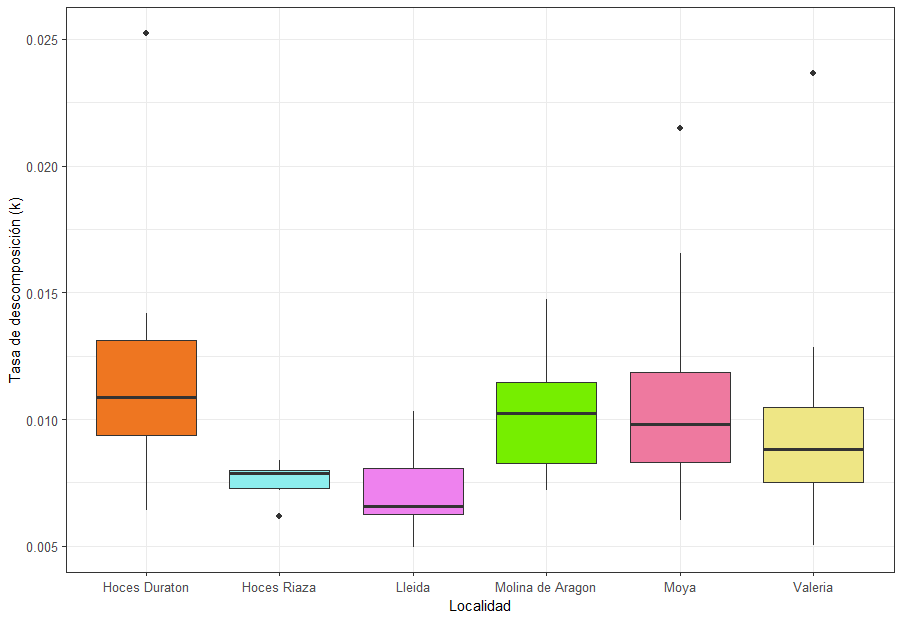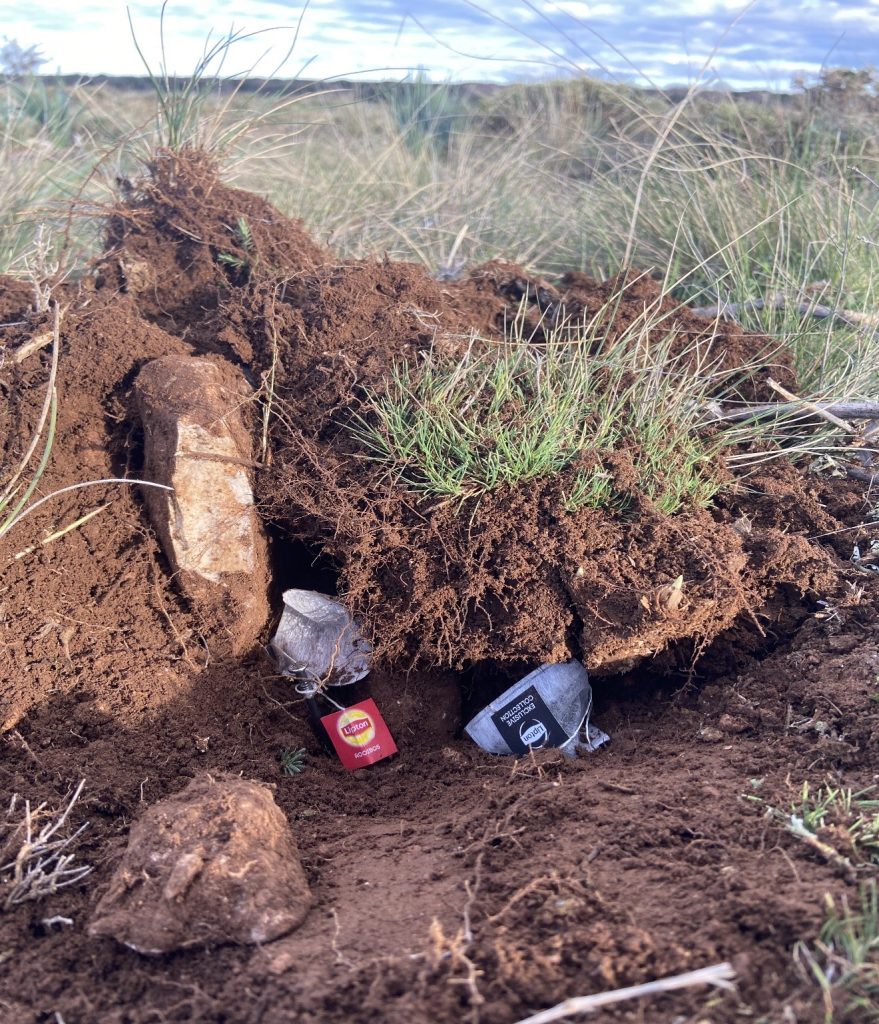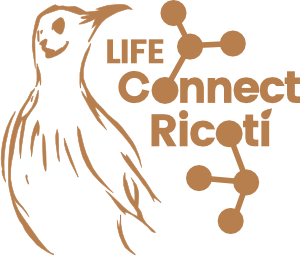The LIFE Connect Ricotí project aims to evaluate the effect that steppe habitat restoration actions and the promotion of extensive grazing have on ecosystem functioning. For example, we applied the Tea Bag Index® protocol to assess the decomposition capacity of our soils.
This method, tested and standardized internationally, involves burying two tea bags, one green and one red, at a depth of 8 cm, separated by 5 cm from each other. These bags are left in the ground for three months and then collected to dry in an oven at 70 degrees for 48 hours.
Once dry, the contents of the bags are weighed and specific parameters are used to calculate the decomposition rate, and therefore the microbial activity of the soil. This method provides a precise measure of the efficiency of the decomposition process in our soils, providing valuable information about their health and capacity to handle organic matter.

In the LIFE Connect Ricotí project, we buried the tea bags at the end of April 2022 and recovered them at the end of July. After carrying out the process we explained, this year’s results indicate that Hoces del Duratón has a higher decomposition rate than the other areas.
This result will be related to other elements of the ecosystem to help understand its functioning and thus try to improve its conservation status (Figure 1).

Tea bags were also buried in 2023, but we have not yet analyzed these data… we will be publishing them in the future!

